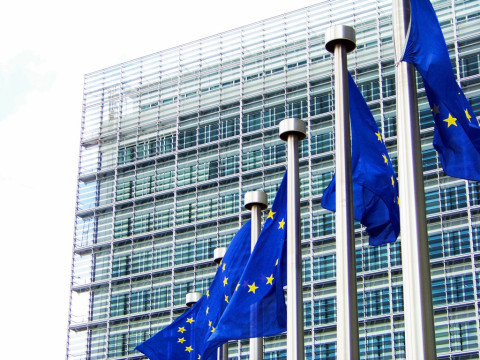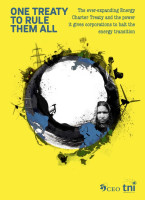EU Energy Ministers need to accept the Commission's proposal for a coordinated withdrawal from the ECT
Topics
When the EU’s Energy Ministers meet on July 12th, a proposal by the EU Commission for a coordinated withdrawal of the EU and its member states from the Energy Charter Treaty (ECT) will be on the table for discussion.

Álvaro Millán via Flickr (CC BY-ND 2.0)
Wild fires, extreme weather and droughts have become shockingly normal around the world and the climate crisis is largely to blame. The ECT is a clear and persistent obstacle to the bold action that is urgently required to save lives and livelihoods in Europe and around the world.
The ECT is an international agreement from the mid-1990s. It grants corporations in the energy sector enormous power to sue states at international investment tribunals for billions of dollars, for example, if a government decides to stop new oil or gas pipelines or to phase out coal. The treaty and its implications cause governments to think twice before enacting climate-positive policies (the so-called ‘chilling effect).
Many countries have already withdrawn from this out-dated and destructive treaty and now, at last, the EU Commission has proposed a coordinated withdrawal of the EU and all its member states. The ECT is a major obstacle to the EU’s energy sovereignty and climate neutrality goals. It is also against the EU’s investment policy and EU law. Attempts to modernize the ECT have failed to address its structural problems or align it with the Paris Agreement – an assessment shared by the independent French High Council on Climate and the British Climate Change Committee.
Ahead of the July 12th meeting, leaders of more than twenty key civil society organisations have publicly called on Energy Ministers to support the Commission's proposal. A coordinated withdrawal of the EU and all its member states will provide the legal clarity and certainty to accelerate the EU’s energy transition away from fossil fuels. It is also the safest option and the only one that can significantly reduce the risks of claims against EU energy and climate policies, by enabling the EU and its member states to remove the ‘sunset clause’ between themselves. Both the European Commission and the European Parliament support a coordinated withdrawal.
On the other hand, a split EU membership of the ECT would fragment the single market and undermine the EU’s external representation, particularly in energy and climate issues. It will also expose remaining member states to the risk of being sued under the ECT for actions undertaken by the Union. Countries that remain in the ECT will also need to bear the costs of internal coordination and financing the ECT’s Secretariat.
The decision to leave the ECT has dragged on for too long. It is now time for the Council of the EU to show leadership. The Energy Charter Treaty is not fit for purpose and will remain a barrier to EU climate and energy goals unless the EU and all its member states jointly withdraw from it.



